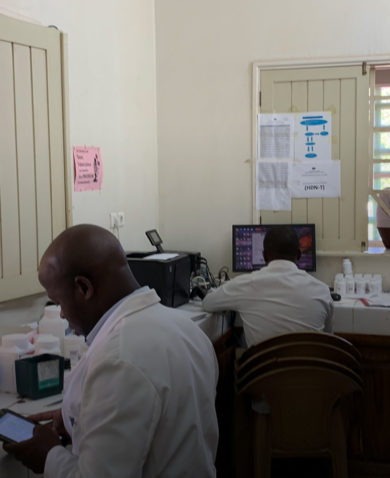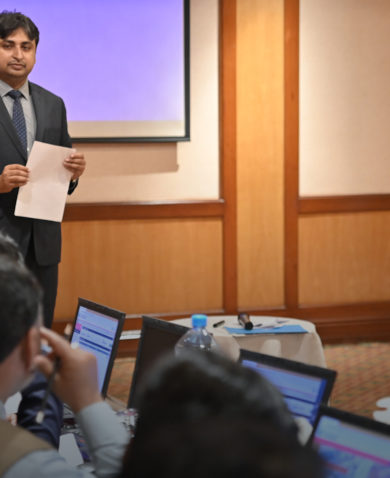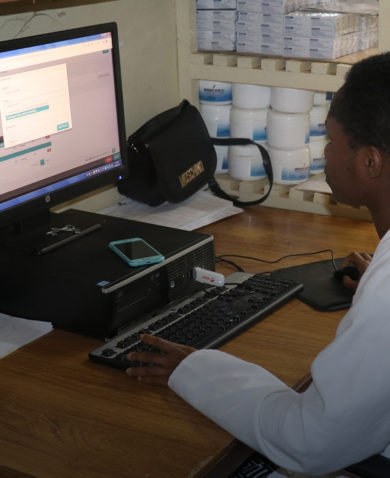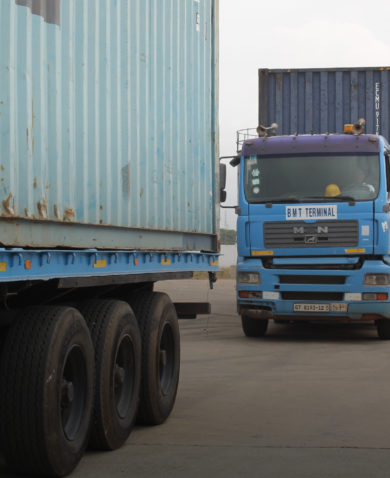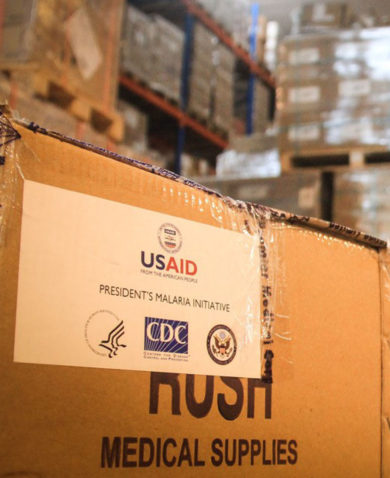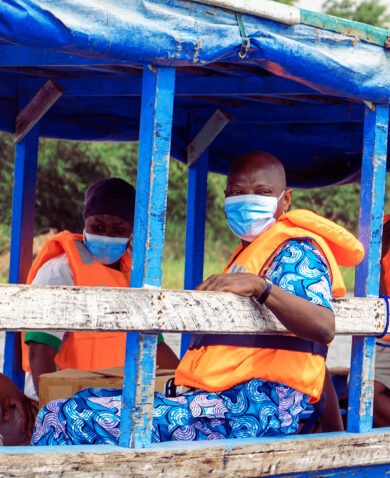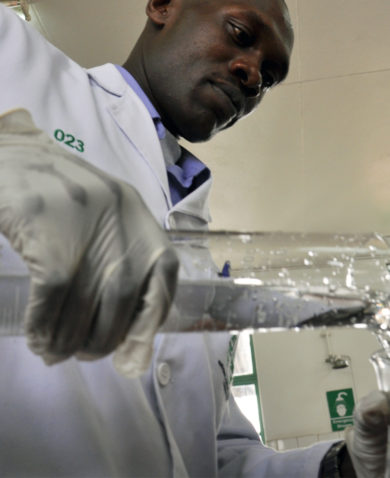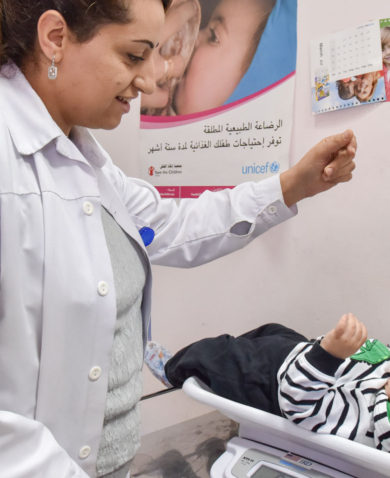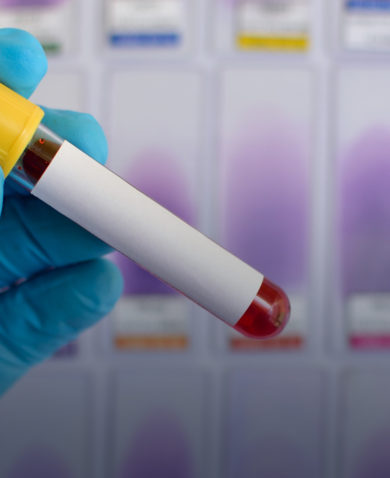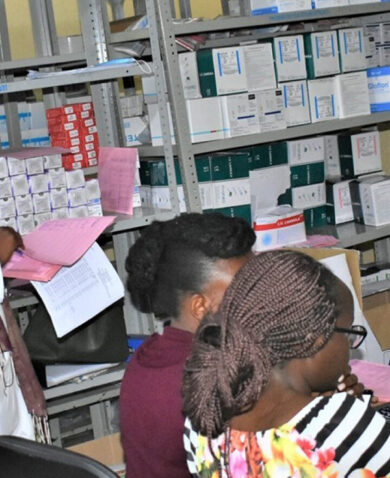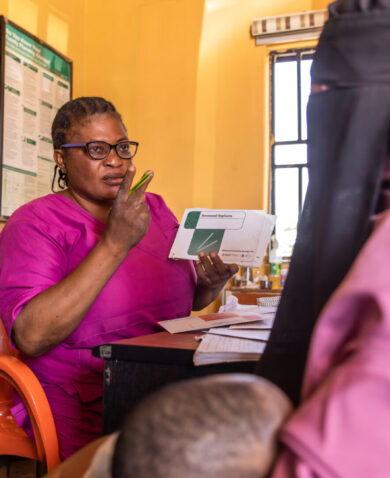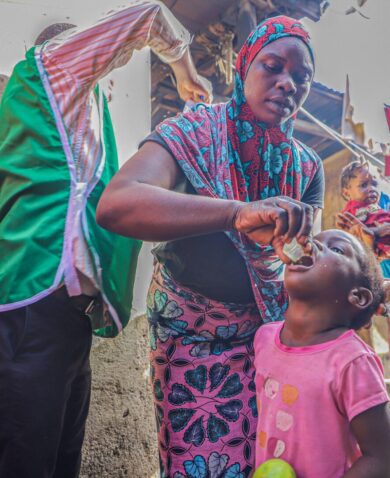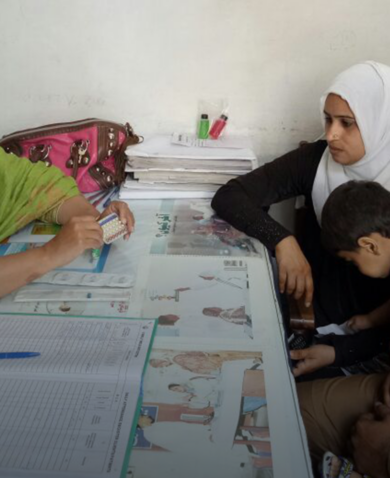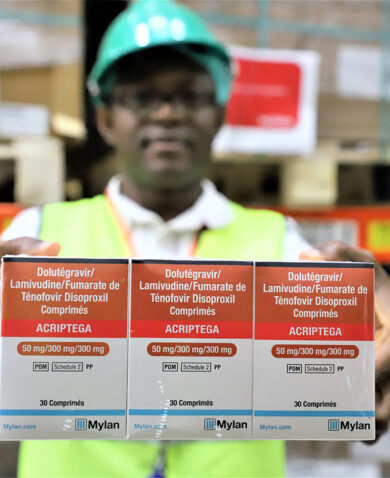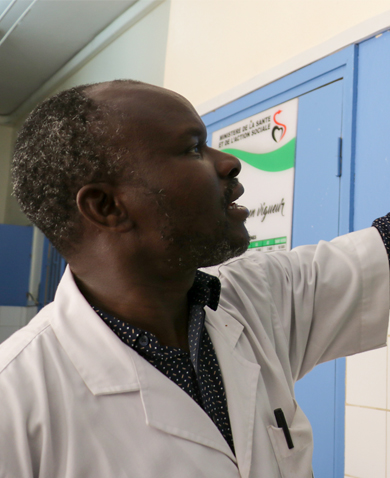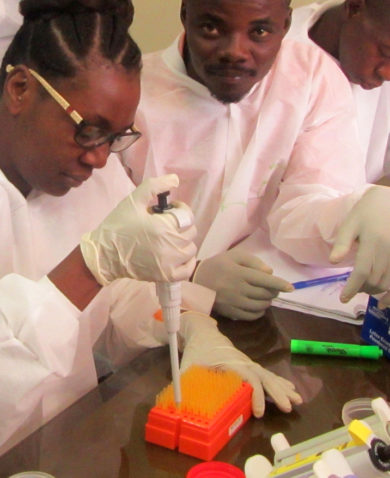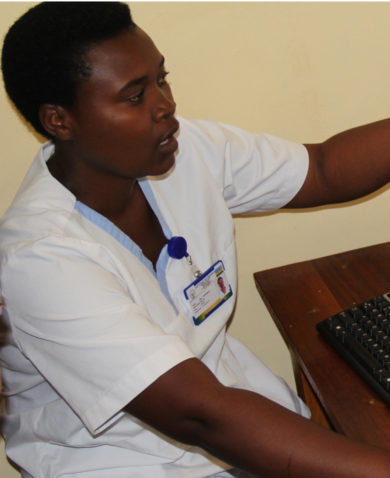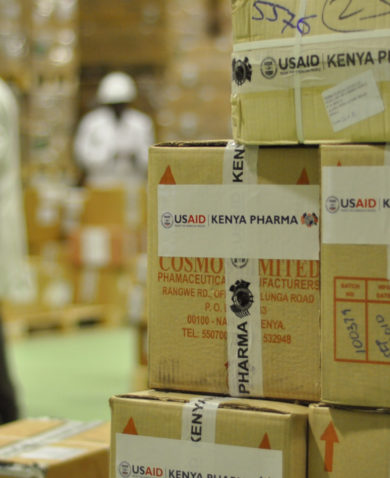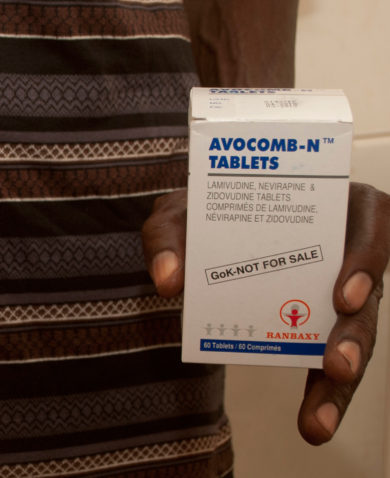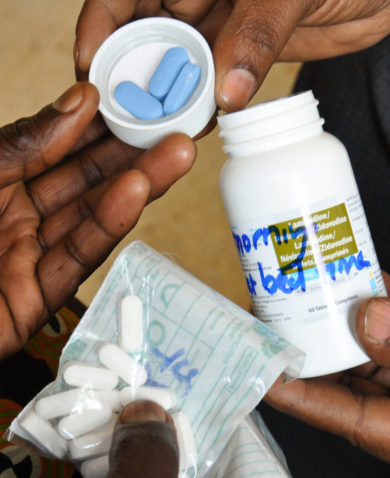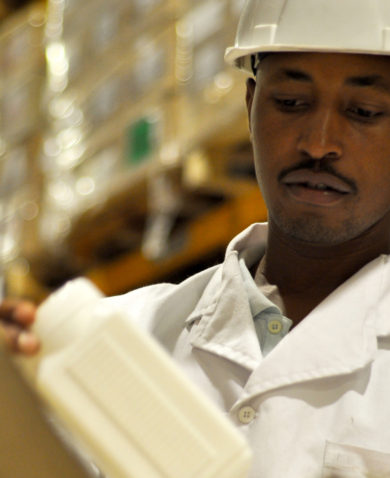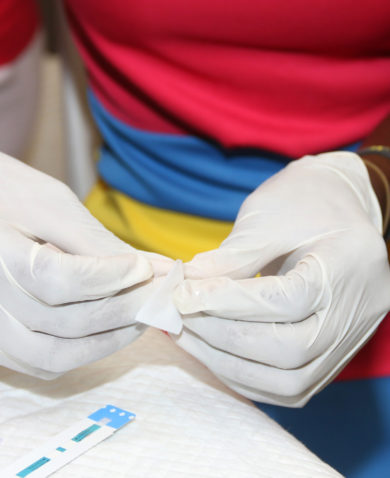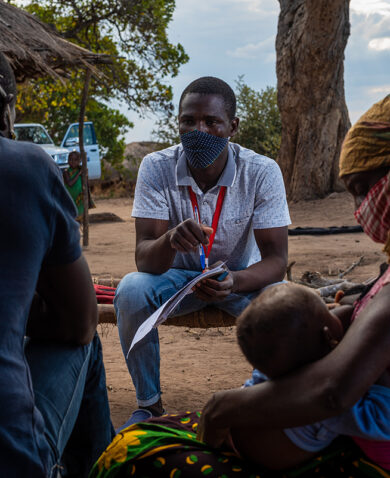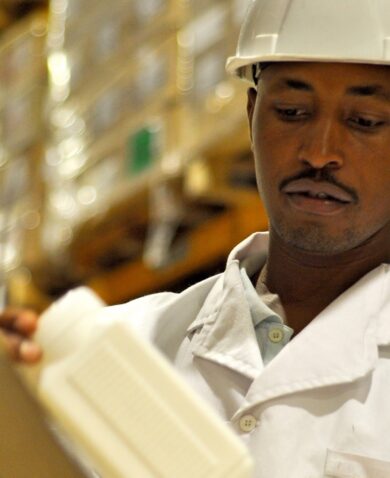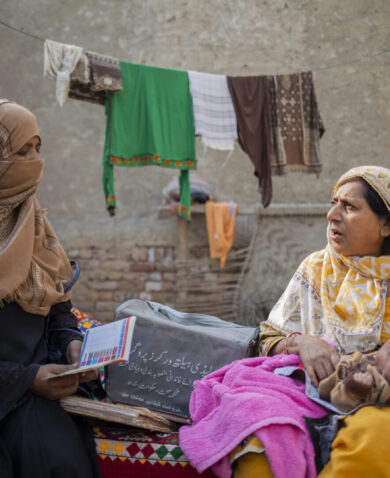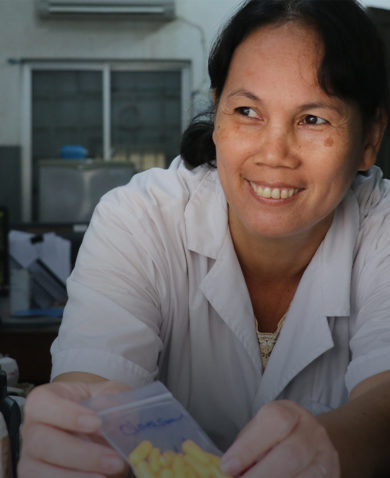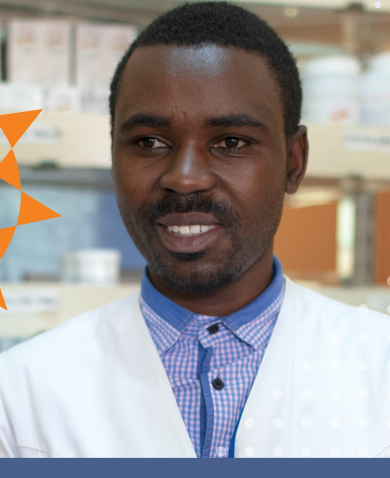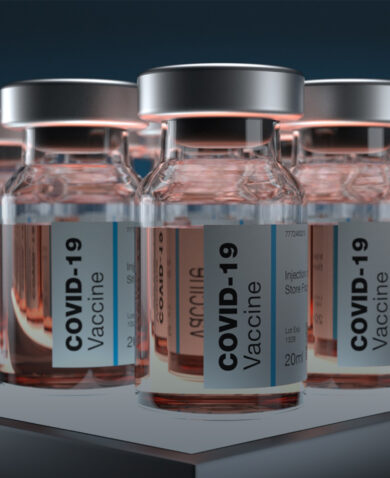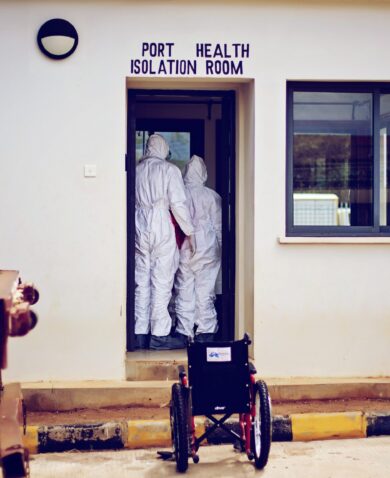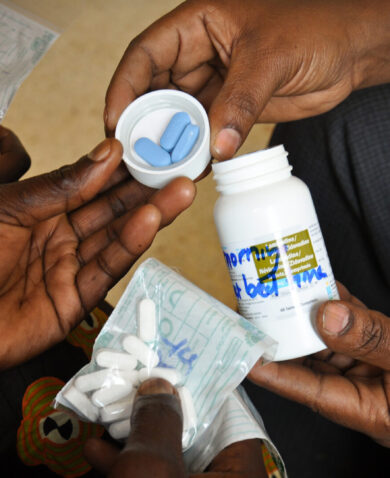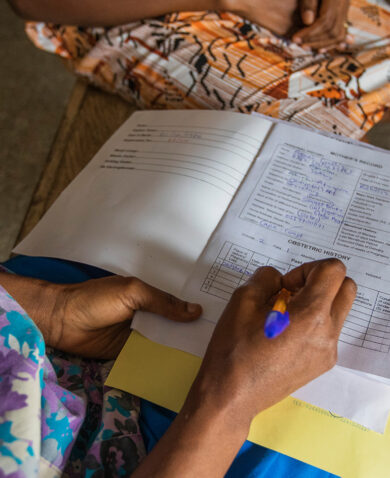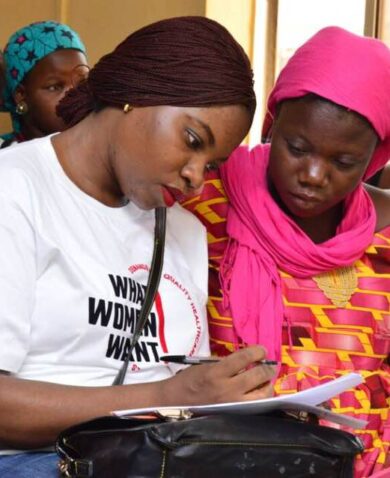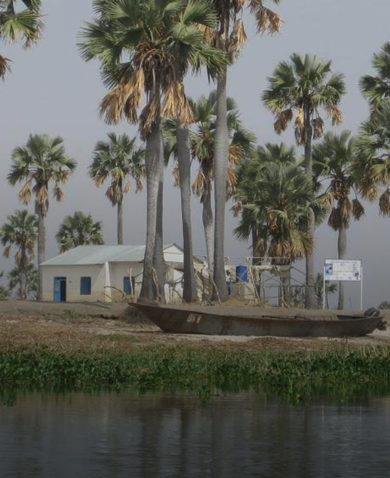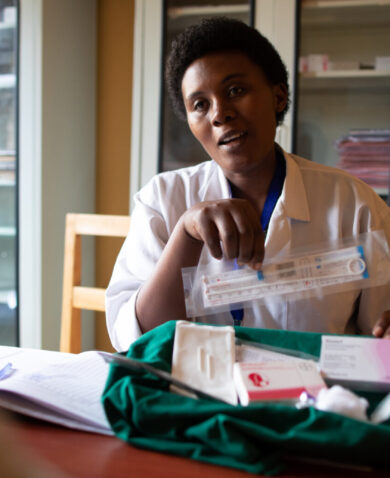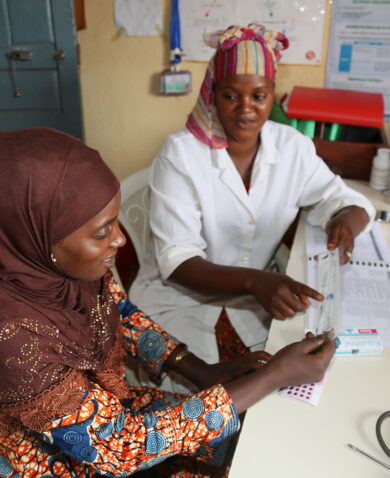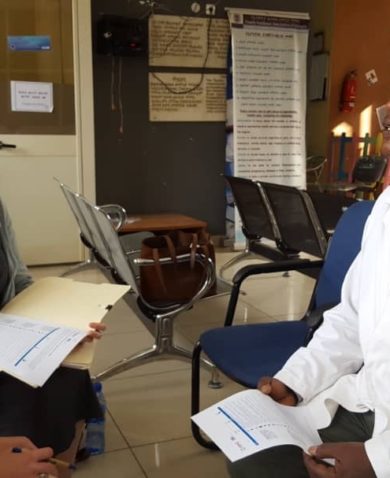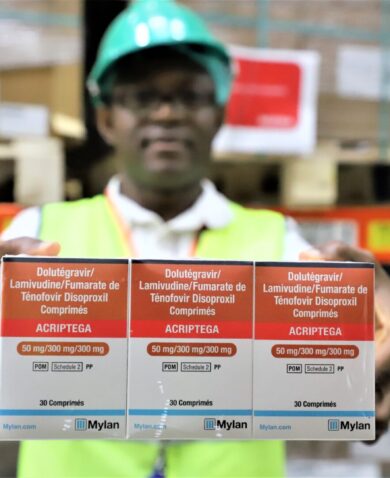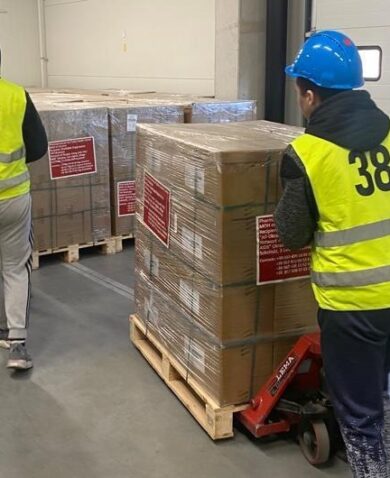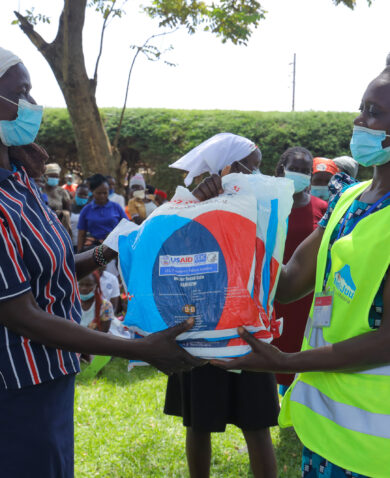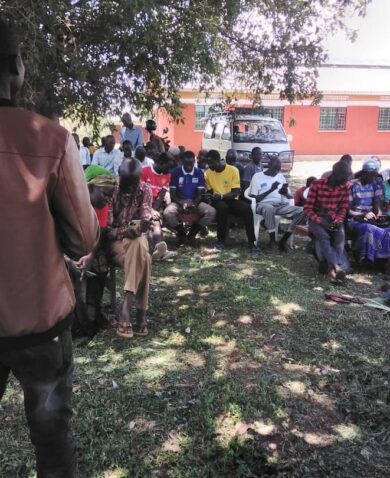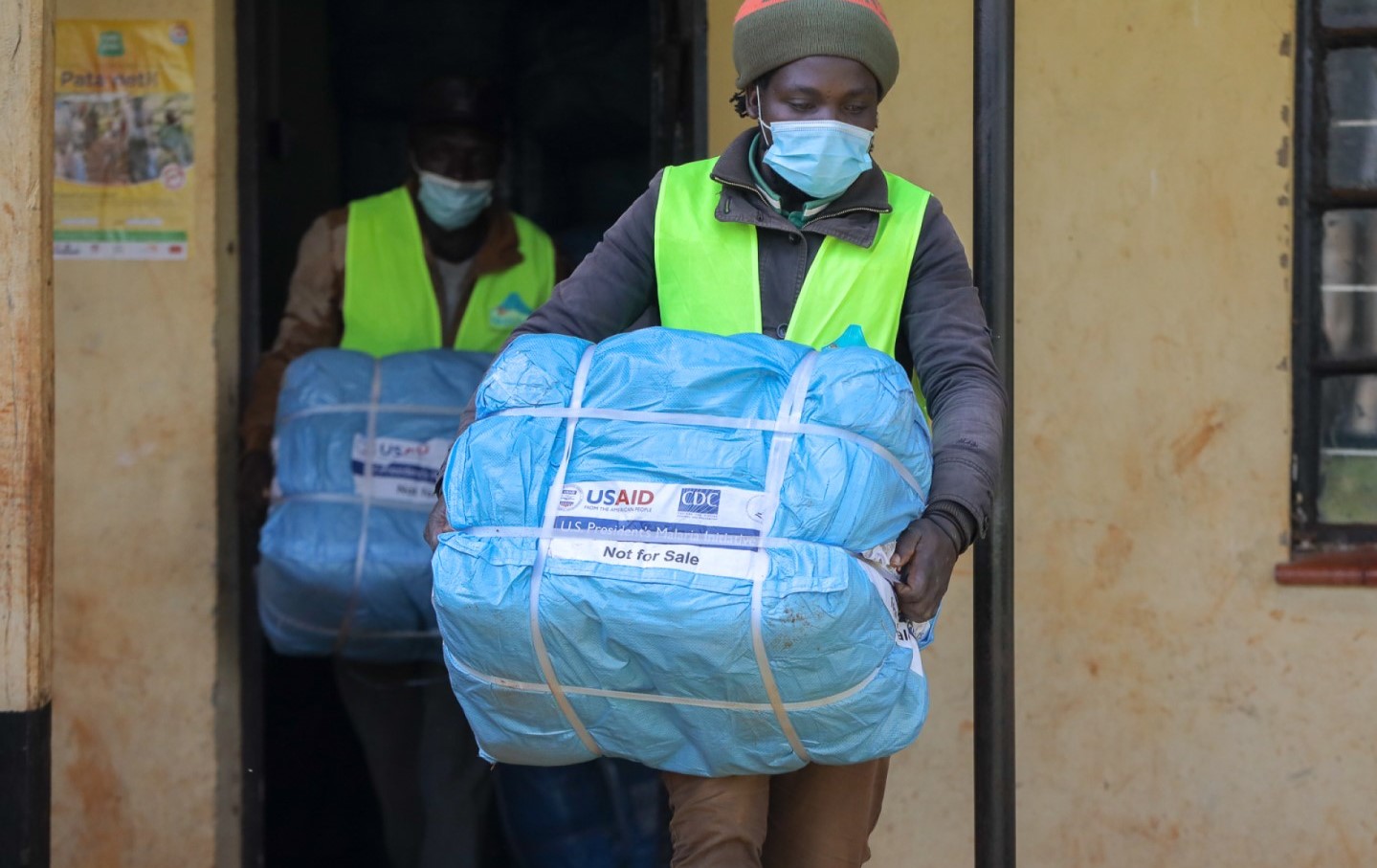
Private Vendor Competition Strengthens Angola’s Malaria Supply Chain .
July 14, 2021In Angola, we found a way to strengthen health supply chains, even amid the COVID-19 pandemic, by introducing a new contract mechanism that enhanced competitive pricing for lifesaving malaria commodities.
One of Angola’s most important supply chains ensures the successful procurement and delivery of malaria commodities. These goods are vital to Angola, which is among 10 countries with the world’s highest annual number of malaria cases and deaths. The nation also grapples with some common supply chain challenges, such as poor road networks and weak supply chain management, which can lead to product stockouts or even overstock and waste.
The spread of COVID-19 could have exacerbated the already difficult delivery of malaria commodities. But for the products that are managed and delivered by our USAID Global Health Supply Chain Program-Procurement and Supply Management (GHSC-PSM) project, there was no perceivable delay because of a new contract mechanism the project implemented. The new contract was rolled out with private third-party logistics (3PL) providers that distribute and ensure on-time commodities delivery to the provinces where the U.S. President’s Malaria Initiative (PMI) focuses support.
Enhancing Market Competition
The USAID GHSC-PSM project supports PMI to reduce the burden of malaria in Angola through several approaches. The project hires 3PLs to transport and deliver commodities from warehouses in capital city Luanda to provincial warehouses, municipal stores, and health facilities. Also, in six PMI-supported provinces, GHSC-PSM provides technical assistance to provincial Ministry of Health offices to create local malaria commodity distribution plans.
In March 2020, when COVID-19 was declared a pandemic, GHSC-PSM did not falter. Instead, the project expanded distribution to safeguard the uninterrupted supply of commodities. GHSC-PSM recognized that provincial warehouses were quickly becoming overloaded with COVID-19-related supplies, such as personal protective equipment, and were not able to distribute commodities to the health facility level. The Ministry of Health and the project determined that GHSC-PSM’s 3PLs should transport commodities directly to municipal stores and health facilities, bypassing the provincial warehouses whenever possible. While this was a costly endeavor, considering the number of sites and increased transport distance, GHSC-PSM had a plan to keep prices down.
GHSC-PSM shifted from using one 3PL by awarding its framework distribution contract (also known as an indefinite-quantity contract [IQC], under which work is awarded through task orders) to two 3PLs, fostering market competition among the 3PLs. To maintain transparent pricing and an on-budget initiative, the project created a standardized, streamlined template to request pricing details for each distribution — mini proposals with quotes — from its pre-qualified vendors before the Ministry of Health needed commodities for distribution. The new format facilitates a side-by-side cost comparison between vendors and helps GHSC-PSM understand the vendors’ pricing mechanisms and the total cost that vendors incur for their services. It also benchmarks against local market prices to understand fair-market value for services. With this type of contract, the vendor willingly shares information and costs, allowing the project to manage the contract and control costs. At the same time, the vendor enhances their competitiveness to respond to future bids in the sector. According to GHSC-PSM’s Country Director in Angola, Ladi Stephen, “We forced a small, noncompetitive market to be more competitive, but we have to do work to maintain this without giving preference to any particular vendor. We have to nurture the market that we have created because it didn’t necessarily occur naturally.”
Tunima Cahalo, director of Integrated Logistics Solutions Luanda at Bolloré Transport and Logistics in Angola — one of the 3PLs under the framework distribution contract — concurs: “The new contract is good for competition. We have improved our services and rates [in response].”
3PL Orey Transports & Logistics International’s CEO João Teiga explains: “It’s easier to work with Chemonics than in the past with other set ups. They have a policy to respond immediately and always meet the deadlines …. We receive a reply, whether we win [the work to carry out the distribution in question] or not — so it’s a very transparent and well-organized process.”
Re-envisioning the framework distribution contract has given GHSC-PSM better visibility of all commodity-movement costs in Angola, from storage to distribution, allowing cost reductions without compromising service.
Maintaining Quality Standards
To avoid quality control issues that could come with lower costs, GHSC-PSM modified usable, achievable key performance indicators (KPIs) and built them into the IQC contract. The KPIs include clearly defined distribution deliverables and tools for performance measurement, evaluation, and improvement. The 3PLs reviewed and negotiated KPI details so they are specific and applicable to the Angola context. Now, pre-qualified 3PLs compete on cost for each distribution, but GHSC-PSM also measures their performance. The quality of KPI monitoring and the success of enacting it depend heavily on GHSC-PSM, which must regularly complete the KPI template, save backup documentation, and consistently give feedback to vendors so they understand how their performance is measured.
With KPIs as part of the award criteria, 3PLs must continue to provide high-quality service to remain competitive and address challenges. This is beneficial for the vendors, who now have clear expectations and a road map to improve and maintain quality performance. Orey’s Teiga appreciates the process: “We’ve learned to be prepared at all times to answer requests for information and provide easy solutions. It has been a positive learning experience. We like KPIs and have made quality improvements through them.”
Overall, GHSC-PSM’s constant, consistent monitoring and evaluation of performance and supply chain processes, coupled with ongoing, cooperative dialogue with the 3PLs about areas of improvement, ensure the best value for the contracting agency and timely distribution to clients.
Improving Availability of Health Commodities
GHSC-PSM set a new standard for working with private vendors. The new contract mechanism ensures that superfluous costs and fees cannot be hidden, leading to accurate, transparent quotes. By defining KPIs and specifying 3PLs’ performance expectations, the contract offers a higher degree of collaboration, communication, management of, and partnership with pre-qualified vendors, while emphasizing quality. As a result, GHSC-PSM exercises commercial best practices to get the best value and streamline operations, while private sector vendors have a clear road map to gain a competitive edge for future contracts.
These changes also have larger implications. In a world that is still experiencing the pandemic’s reverberating effects on production, transportation, and other supply chain disruptions, GHSC-PSM’s effort is easily scaled to other locations so that supply chain vendor contracts are fair and relatively simple to implement and manage. This approach is beneficial for countries working to build strong, sustainable health supply chains, and the new efficiencies and savings will enable commodities to get to the health facilities and patients who need them most.



